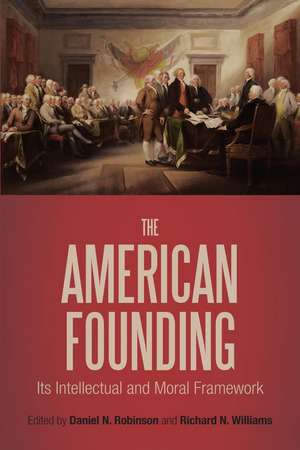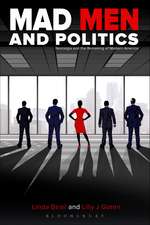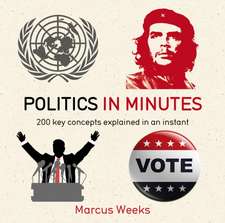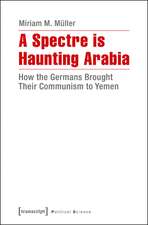The American Founding: Its Intellectual and Moral Framework
Editat de Professor Daniel N. Robinson, Dr. Richard N. Williamsen Limba Engleză Paperback – 29 aug 2012
America's Founding Fathers shared similar beliefs on the nature of civic life and the character of those supposed to be able to self-govern. Although they studied the failed republics of the ancient world, they believed that classical ideals were still applicable to politics.
This unique contribution to the literature on American Founding gathers leading thinkers who set out not to relate its history, but its intellectual underpinnings. They explore the Founding Fathers' assumptions about civic life, human nature, political institutions, private morality, aesthetics, education, and history. Chapters on natural law, the Judeo-Christian conception of human nature, the influence of Aristotle and Cicero, the symbolic role of architecture, and the importance of education help understand the foundations that led to the Declaration of Independence and a constitutional charter that aimed to be universal in its human aspirations.
This authoritative work provides a conservative response to more liberal interpretations of America. It will enrich the debate on civic life and be a key resource to anyone interested in America's "experiment in ordered liberty."
This unique contribution to the literature on American Founding gathers leading thinkers who set out not to relate its history, but its intellectual underpinnings. They explore the Founding Fathers' assumptions about civic life, human nature, political institutions, private morality, aesthetics, education, and history. Chapters on natural law, the Judeo-Christian conception of human nature, the influence of Aristotle and Cicero, the symbolic role of architecture, and the importance of education help understand the foundations that led to the Declaration of Independence and a constitutional charter that aimed to be universal in its human aspirations.
This authoritative work provides a conservative response to more liberal interpretations of America. It will enrich the debate on civic life and be a key resource to anyone interested in America's "experiment in ordered liberty."
| Toate formatele și edițiile | Preț | Express |
|---|---|---|
| Paperback (1) | 190.50 lei 43-57 zile | |
| Bloomsbury Publishing – 29 aug 2012 | 190.50 lei 43-57 zile | |
| Hardback (1) | 877.63 lei 43-57 zile | |
| Bloomsbury Publishing – 29 aug 2012 | 877.63 lei 43-57 zile |
Preț: 190.50 lei
Preț vechi: 221.60 lei
-14% Nou
Puncte Express: 286
Preț estimativ în valută:
36.45€ • 38.16$ • 30.16£
36.45€ • 38.16$ • 30.16£
Carte tipărită la comandă
Livrare economică 07-21 aprilie
Preluare comenzi: 021 569.72.76
Specificații
ISBN-13: 9781441142443
ISBN-10: 1441142444
Pagini: 192
Dimensiuni: 147 x 226 x 15 mm
Greutate: 0.3 kg
Ediția:New.
Editura: Bloomsbury Publishing
Colecția Continuum
Locul publicării:New York, United States
ISBN-10: 1441142444
Pagini: 192
Dimensiuni: 147 x 226 x 15 mm
Greutate: 0.3 kg
Ediția:New.
Editura: Bloomsbury Publishing
Colecția Continuum
Locul publicării:New York, United States
Caracteristici
Explores the Founders' assumptions about civic life, political institutions, private morality, aesthetics, history, and education.
Notă biografică
Daniel N. Robinson is Professor of Philosophy at the University of Oxford, UK, and Distinguished Professor Emeritus at Georgetown University, USA.
Richard N. Williams is Associate Academic Vice President and Wheatley Institution Director at Brigham Young University, USA. He has been a visiting faculty member at Duquesne University and at Georgetown University, USA and is the author of numerous books and journal articles.
Cuprins
1. Natural Law, God and Dignity
Robert George
2. The Jewish and Christian Principles of the Founders
Michael Novak
3. The Classical Roots of the American Founding
Carl Richard
4. The Universal Principles of the American Founding
Thomas G. West
5. City as Teacher
Carroll William Westfall
6. The Founders' Conception of Education for Civic Life
Daniel N. Robinson
7. Constitutionalism and Its Presuppositions
Hadley Arkes
Robert George
2. The Jewish and Christian Principles of the Founders
Michael Novak
3. The Classical Roots of the American Founding
Carl Richard
4. The Universal Principles of the American Founding
Thomas G. West
5. City as Teacher
Carroll William Westfall
6. The Founders' Conception of Education for Civic Life
Daniel N. Robinson
7. Constitutionalism and Its Presuppositions
Hadley Arkes
Recenzii
"This is an impressive collection of essays by leading scholars investigating different aspects of the American Founding. The editors and contributors affirm the importance of engaging foundational themes and questions in studying the civic life of the United States. The book will be accessible to non-scholars and should stimulate further reading, reflection, and discussion." -David L. Tubbs, King's College, New York City
"Professors Robinson and Williams have brought together an all-star group of scholars to tackle in the round a vexing question for anyone who cares about America's democracy: how are we to revive the founders' defining belief that our political regime depends upon the presence of a virtuous citizenry. Sometime in the last fifty or so years too many Americans -- especially those in government and in the universities -- forgot what the founders knew must always be kept in mind. This volume is an especially timely and valuable primer on how we might recover our tradition." -Gerard V. Bradley, Professor of Law, University of Notre Dame
All the chapters offer intelligent, learned, and soberly urgent reflection on 'the intellectual and moral foundations of civic life' in America. Citizens and politicians cogitating about how to strengthen and restore the conditions for self-government in our democracy will find in this book some excellent examples of how to think and talk about that important endeavor. It is a book that could be assigned with good effect to undergraduates in American Government courses, too.
"Professors Robinson and Williams have brought together an all-star group of scholars to tackle in the round a vexing question for anyone who cares about America's democracy: how are we to revive the founders' defining belief that our political regime depends upon the presence of a virtuous citizenry. Sometime in the last fifty or so years too many Americans -- especially those in government and in the universities -- forgot what the founders knew must always be kept in mind. This volume is an especially timely and valuable primer on how we might recover our tradition." -Gerard V. Bradley, Professor of Law, University of Notre Dame
All the chapters offer intelligent, learned, and soberly urgent reflection on 'the intellectual and moral foundations of civic life' in America. Citizens and politicians cogitating about how to strengthen and restore the conditions for self-government in our democracy will find in this book some excellent examples of how to think and talk about that important endeavor. It is a book that could be assigned with good effect to undergraduates in American Government courses, too.
Descriere
Descriere de la o altă ediție sau format:
Renowned scholars examine the core precepts that guided the American Founding, looking at the Founders' intellectual groundings from philosophy of law to architecture.
Renowned scholars examine the core precepts that guided the American Founding, looking at the Founders' intellectual groundings from philosophy of law to architecture.








